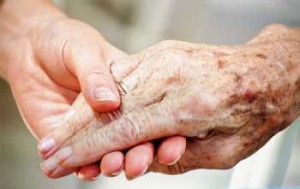 People are living longer but spending more time with often debilitating illness and disability, according to a major new study.
People are living longer but spending more time with often debilitating illness and disability, according to a major new study.
The Global Burden of Disease study published in The Lancet found that healthy life expectancy had increased steadily in 191 countries, meaning that people’s average life spans had increased by 6.1 years over the last 15. But overall life expectancy has increased by 10.1 years over the same period. That suggests that people are now having longer lives, and much more of those lives spent living with ill health.
The findings echo concerns of some medical professionals that more time and effort is being spent prolonging life at the expense of quality of life.
The study gathered data on 249 causes of death, 315 diseases and injuries and 79 risk factors in 195 countries and territories between 1990 and 2015.
It found that seven out of every 10 deaths last year was caused by conditions like heart disease, stroke, diabetes, chronic kidney damage and Alzheimer’s. That was set against falling death rates from communicable diseases like HIV/Aids and malaria.
In 2015, 40 million global deaths - 70% of the total - were due to non-communicable diseases.
The total number of annual deaths had increased from about 48 million in 1990 to almost 56 million in 2015.
Study co-ordinator Dr Christopher Murray, Director of the Institute for Health Metrics and Evaluation at the University of Washington in Seattle, USA, said: "Development drives, but does not determine health.
"We see countries that have improved far faster than can be explained by income, education, or fertility. And we also continue to see countries, including the United States, that are far less healthy than they should be given their resources."
